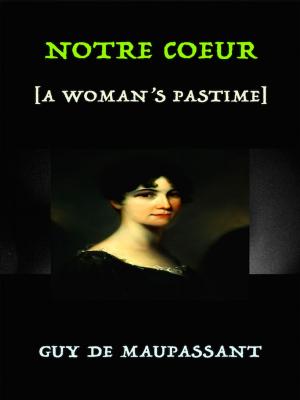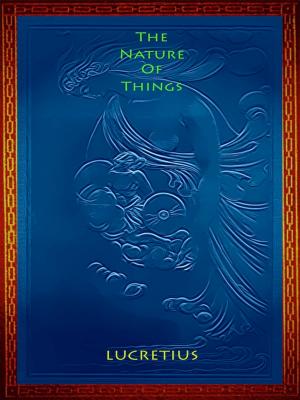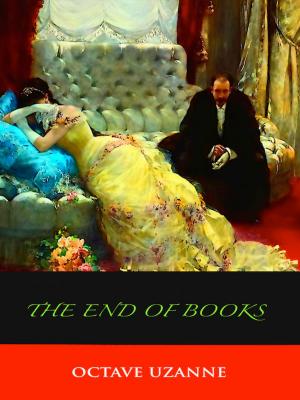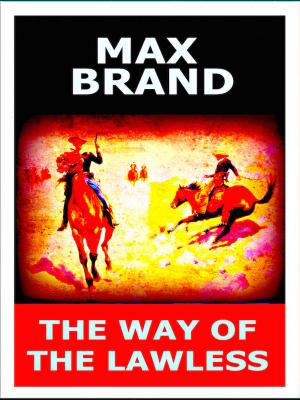| Author: | William Stebbing | ISBN: | 1230001357318 |
| Publisher: | Editions Artisan Devereaux LLC | Publication: | September 23, 2016 |
| Imprint: | Language: | English |
| Author: | William Stebbing |
| ISBN: | 1230001357318 |
| Publisher: | Editions Artisan Devereaux LLC |
| Publication: | September 23, 2016 |
| Imprint: | |
| Language: | English |
“He gave the taste vogue, teaching the courtiers to smoke their pipes
with silver bowls, and supplying them with the leaf.”
-Stebbing’s description of Raleigh introducing pipes and tobacco to England.
William Stebbing crafts a deft portrait of one of the most notable figures of the Elizabethan era: writer, soldier, explorer, spy, Sir Walter Raleigh in his acclaimed Sir Walter Raleigh - A Biography.
At the time, Raleigh was one of the most famous men in England. But his formidable public persona was only one side of a complex personality.
In meticulous strokes, Stebbing renders Raleigh in all his flawed splendor—someone who doggedly cultivated his reputation and influence. He rose rapidly in the favour of Queen Elizabeth I and was knighted in 1585 despite being suspected of numerous court intrigues, and an assassination plot.
Raleigh was instrumental in the English colonization of North America and was granted a royal patent to explore Virginia, which paved the way for future English settlements.
He is also credited with introducing tobacco to England in 1586.
In 1591, he secretly married Elizabeth Throckmorton, one of the Queen's ladies-in-waiting, without the Queen's permission, for which he and his wife were sent to the Tower of London.
In 1594, Raleigh heard of a "City of Gold" in South America and sailed to find it, publishing a larger-than-life account of his experiences in a book that contributed to the legend of "El Dorado".
After Queen Elizabeth died in 1603, Raleigh was again imprisoned in the Tower, this time for being accused of a plot against King James I.
In 1616, he was released to lead a second expedition in search of El Dorado. This was unsuccessful, and men under his command plundered a Spanish outpost.
When he returned to England he was arrested and beheaded in 1618 to appease the Spanish government.
SIR WALTER RALEIGH (1554–1618) was an English adventurer and writer; a favorite of Queen Elizabeth I, who knighted him in 1585. He traveled to distant lands in search of new territories and riches for the British Empire. He also wrote a history of the world, and accounts of his many voyages. Accused of treason by Elizabeth’s successor James I, he was imprisoned in the Tower of London and eventually put to death.
“He gave the taste vogue, teaching the courtiers to smoke their pipes
with silver bowls, and supplying them with the leaf.”
-Stebbing’s description of Raleigh introducing pipes and tobacco to England.
William Stebbing crafts a deft portrait of one of the most notable figures of the Elizabethan era: writer, soldier, explorer, spy, Sir Walter Raleigh in his acclaimed Sir Walter Raleigh - A Biography.
At the time, Raleigh was one of the most famous men in England. But his formidable public persona was only one side of a complex personality.
In meticulous strokes, Stebbing renders Raleigh in all his flawed splendor—someone who doggedly cultivated his reputation and influence. He rose rapidly in the favour of Queen Elizabeth I and was knighted in 1585 despite being suspected of numerous court intrigues, and an assassination plot.
Raleigh was instrumental in the English colonization of North America and was granted a royal patent to explore Virginia, which paved the way for future English settlements.
He is also credited with introducing tobacco to England in 1586.
In 1591, he secretly married Elizabeth Throckmorton, one of the Queen's ladies-in-waiting, without the Queen's permission, for which he and his wife were sent to the Tower of London.
In 1594, Raleigh heard of a "City of Gold" in South America and sailed to find it, publishing a larger-than-life account of his experiences in a book that contributed to the legend of "El Dorado".
After Queen Elizabeth died in 1603, Raleigh was again imprisoned in the Tower, this time for being accused of a plot against King James I.
In 1616, he was released to lead a second expedition in search of El Dorado. This was unsuccessful, and men under his command plundered a Spanish outpost.
When he returned to England he was arrested and beheaded in 1618 to appease the Spanish government.
SIR WALTER RALEIGH (1554–1618) was an English adventurer and writer; a favorite of Queen Elizabeth I, who knighted him in 1585. He traveled to distant lands in search of new territories and riches for the British Empire. He also wrote a history of the world, and accounts of his many voyages. Accused of treason by Elizabeth’s successor James I, he was imprisoned in the Tower of London and eventually put to death.















